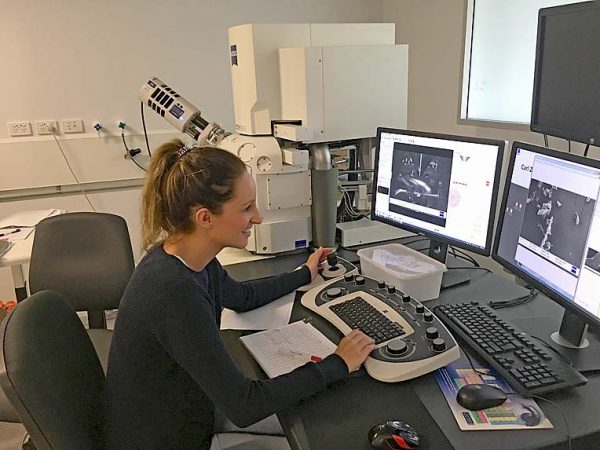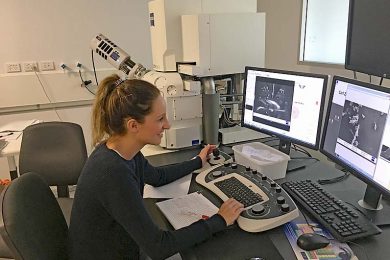
OBESITY is on the rise in Australia, with almost two in three adults and one in four children considered either overweight or obese.
However, former Robe resident Dr Tahnee Dening may have the key to curing the modern weight crisis – by eating dirt.
While investigating how clay materials can improve drug delivery, the 29-year-old found the clay materials she was using had a unique ability to “soak up” fat droplets in the gut.
In trials, Dr Dening discovered bentonite, which is a natural clay material purified from dirt, was soaking up the fats and oils present in her studies.
“This led me to my hypothesis – that bentonite can be redeveloped to treat obesity,” she said.
“Any fat trapped in bentonite cannot be digested or absorbed by the body.
“It simply passes the whole way through the digestive system.
“In theory, it should lead to a weight lost effect.”
Dr Dening, formerly at the University of South Australia and now a postdoctoral researcher at the University of Kansas, tested the anti-obesity effect in rats, using water, commercially available weight loss products and bentonite while feeding the rats a high-fat diet.
She found both bentonite and the weight loss product reduced rat weight gain over a two week period, with the clay having a larger effect than the commercial product.
“The fact my bentonite outperformed this commercial product suggests that bentonite, which is pretty much clean dirt, could be a more effective treatment against obesity in humans,” Dr Dening said.

“It sounds weird, but it could become a reality with our research.”
Dr Dening said she was now focused on an approach with both the clay material and orlistat – an existing weight-loss drug designed to treat obesity by reducing caloric intake.
“Our processed clay has an unusually high surface area which means it has a huge capacity to interact with and soak up digested fats and oils present in the foods we eat,” she said.
“Orlistat on the other hand, is an enzyme inhibitor that blocks up to 30pc of dietary fat digestion and absorption, which leads to weight loss, but has unpleasant side effects such as stomach aches, bloating, flatulence and diarrhea, which limits its use in weight loss as people choose to stop using it.
“We are essentially attacking fat digestion and absorption in two different ways and we hope this will lead to greater weight loss with fewer side effects.”
University of South Australia Professor Clive Prestidge and Dr Dening’s research supervisor, said the research had captured the attention of potential investors.
“This is a significant discovery that provides new and exciting avenues for weight loss research which naturally attracts potential commercial partners,” he said.
“With a finding like this, people will naturally be keen to find out when they can try it.
“Given the material is generally considered safe and is widely used in food and nutraceutical products, it is feasible that human clinical trials could start reasonably soon.”










